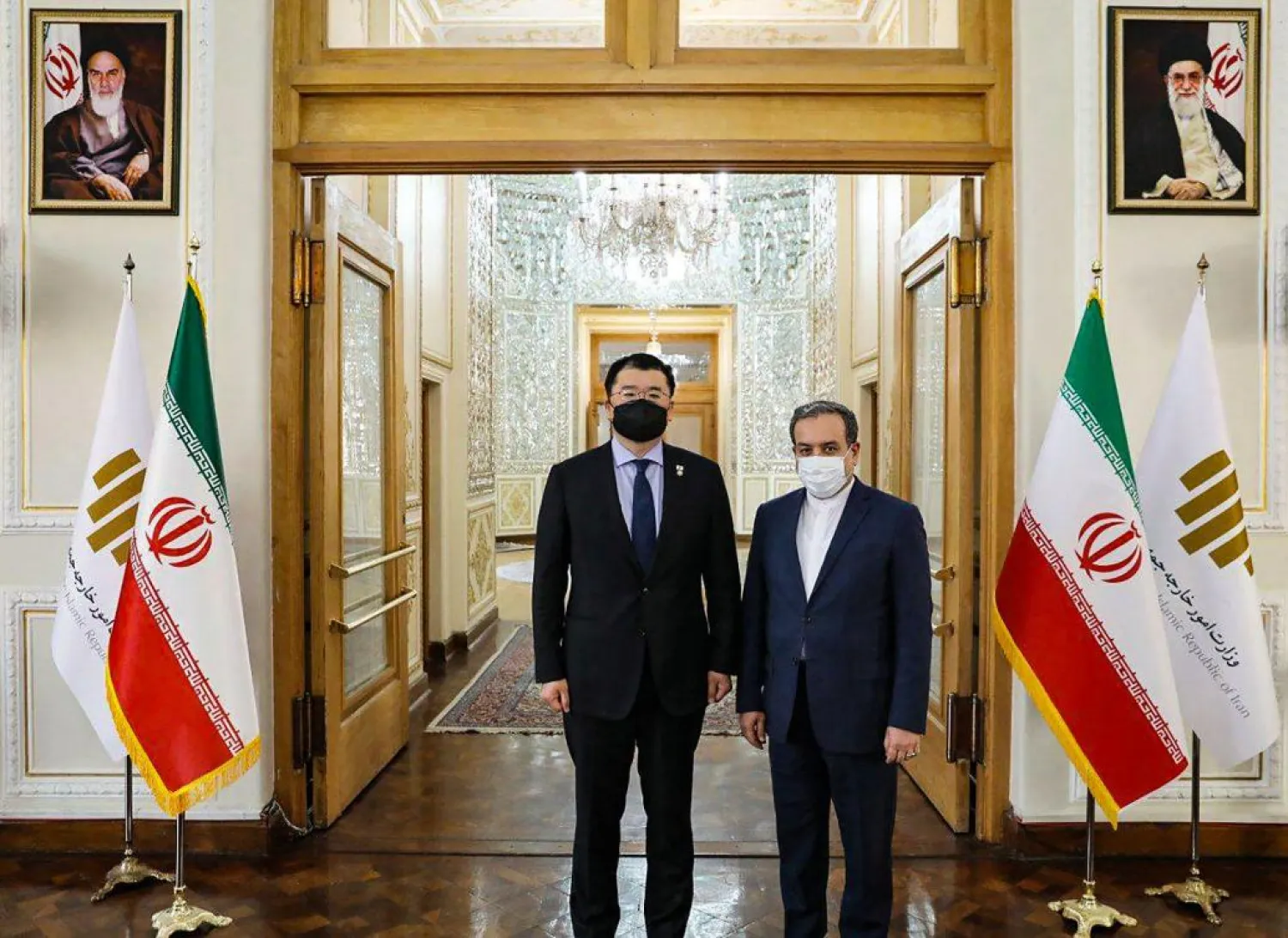Iran’s foreign minister told a visiting South Korean delegation Monday that the release of its vessel and crew seized by Iranian forces is a matter for the courts and out of the government's hands, state media reported.
The development comes amid an escalating financial dispute between the countries.
The official IRNA news agency quoted Mohammad Javad Zarif as saying in a meeting with South Korea's first vice foreign minister that the Iranian government cannot intervene in the case, which is “under review in the legal and judicial framework,” he said.
The South Korean-flagged tanker seizure by Iran’s Revolutionary Guard on Jan. 5 in the crucial Strait of Hormuz came as Iranian officials have been pressing South Korea to release some $7 billion in assets tied up in the country’s banks due to American sanctions. Iran was apparently seeking to increase its leverage over Seoul ahead of South Korea’s pre-scheduled regional trip, which included a stop in Qatar.
Zarif on Monday reiterated the government’s claim that the vessel was confiscated by Iran over “environmental pollution.” But he urged South Korea to remove the restrictions on the Iranian funds, calling the frozen assets the “biggest barrier" to improving relations between the two nations.
“We have repeatedly told the Korean side that politicizing the case would not help resolve the case,” Iranian Foreign Ministry spokesman Saeed Khatibzadeh said. He said South Korean officials could assign an attorney to handle its case and present evidence in court.
Iran maintains the tanker and its 20-member crew were stopped in the mouth of the Gulf because of the vessel’s “environmental pollution" but its owner has rejected the claim. The crew, including sailors from Indonesia, Myanmar, South Korea and Vietnam, remain in custody at the port city of Bandar Abbas near the Strait of Hormuz.
South Korean First Vice Foreign Minister Choi Jong-kun and his delegation arrived in Tehran on Sunday to discuss the release of the Korean vessel and the frozen Iranian assets.
Iranian central bank chief Abdolnasser Hemmati said his country would not accept South Korea resorting to US sanctions as the reason for continuing to hold the Iranian funds.
“I told the South Korean delegation that Iran does not accept their pretexts," said Hemmati, according to Iranian media. He said Iran has recovered resources in other countries, without naming any.
Hemmati said he believed the South Korean delegation was determined to solve the problem.
In recent weeks, Hemmati has complained that Iran was struggling to transfer some $220 million held in South Korean banks to pay for COVID-19 vaccines through COVAX, an international program designed to distribute coronavirus vaccines to participating countries.
The ship seizure was the latest in a series of escalations in the waning days of the administration of President Donald Trump, who unilaterally withdrew the US from Tehran’s nuclear deal in 2018 and reimposed sanctions that the agreement had suspended. Iran has ramped up uranium enrichment levels at Fordow, its key underground nuclear facility, bringing the country a technical step away from weapons-grade purity levels of 90%.









